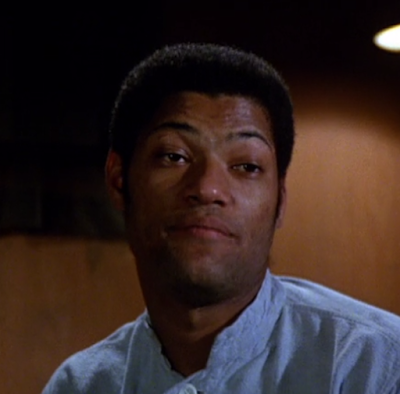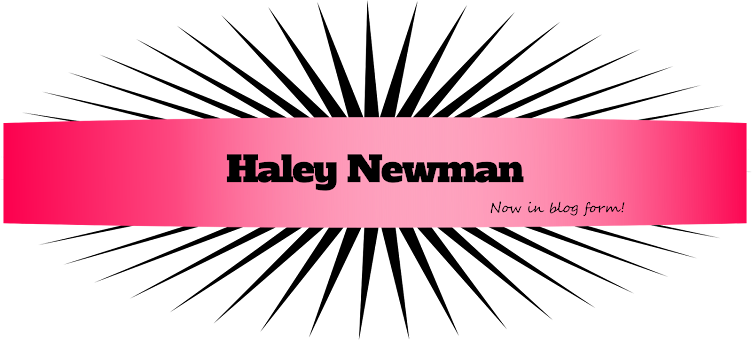I'm what is known as an old millennial. It's a fun group to belong to. Born in the eighties, people my age got to grow up during the rise of cell phones, file sharing, and the Internet in general. For me, being raised by hippies, it sometimes felt like there was a disconnect between the world I was experiencing firsthand and the rapidly changing world I was seeing outside of my home. This line was further blurred by my family's early access to computers and the Internet due to my mother's involvement in academia.
For me, the gap between my parents life and my own was never more apparent to me than during the golden hours of 4-6 pm, when our local network affiliates would play an assortment of pre-dinner time TV that I found frustrating as a kid. As I waited for the reruns of The Simpsons to come on, I'd sometimes have to sit through the closing minutes of MASH or Cheers to get to the good stuff. Those shows, for me, were firmly in the category of "ADULT STUFF THAT I DO NOT UNDERSTAND OR CARE ABOUT." They seemed utterly alien to me.
Even though as an adult I've come to appreciate so many things now that I didn't before, MASH was still intimidating to me. It ended its run before I was even born. It was about SERIOUS TOPICS. And it had an intimidating number of seasons and episodes.
I felt compelled to watch it anyway, to fill in my knowledge gaps and to report back. So the question I set out to answer was- does a show like MASH have any appeal left in it to someone in 2017, someone my age or younger? Does it hold any interest besides just "I always wondered what the show that came on before The Simpsons was about?" Having run the whole series, I can now honestly report back with a solid and confident . . . maybe.
 |
| Look kids! It's just like The Office but instead of selling paper they experience the horrors of war! |
MASH aired from 1972 to 1983. Like the popular 1970 movie it was adapted from, the series takes place during the Korean war following the experiences of a group of army surgeons, MASH standing for mobile army surgical hospital.
The show was known for mixing humor (a blend of slapstick and sarcasm) with the pathos of war in a way that was meaningful for those caught up in Vietnam and its aftermath during that time period. It used the Korean war setting to comment on the current conflicts of the its day. With the breakout character of Hawkeye, played by Alan Alda, it also became the key source point for the new, sensitive 70s guy trope. Alan Alda played a different kind of masculine ideal: witty, snarky, unafraid to express emotion, and a dedicated idealist, even when those ideals were constantly being tested.
What I mostly was surprised about when I watched this show is that for all its legacy of IMPORTANT TELEVISION this is still a half-hour comedy. The physical comedy and mugging is there just as much as the drama. There are running gags, crazy costumes, goofy voices, and wacky characters. The disconnect between the comedy and the drama can really cause some tonal whiplash. Because of that and the overall subject matter, this show can be emotionally exhausting.
It also can just get kind of old. The later seasons feature a lot of rehashing of old jokes and thematic elements. The casts looks noticeably older, considering the time span in which the TV show actually takes place in-universe. It can be distracting. The cast also changes and loses a lot of it stronger supporting characters as it ages. Gimmicks pop up more and more.
 |
| Ticking clock gimmick. |
I also have to point out that obviously there are parts of it that don't hold up today. The most well known is probably the character of Spearchucker Jones, a black surgeon, dropped after only six episodes in the first season. But of course, that isn't the only thing. There are other racial elements that are uncomfortable. However, this being a sensitive show that was trying to appeal to a younger audience, issues of race are sometimes addressed- some characters even learn valuable lessons about not treating the Koreans like garbage. Isn't that nice?
What isn't so nice is the way women are treated. Hot Lips, the main female character on the show, is objectified, ridiculed, and downright assaulted at various times, almost always played for laughs. It is worth noting though that in spite of that, Hot Lips is probably the most nuanced character on the show. She is really given a journey that, from a feminist perspective, is quite authentic seeming. Her character is really the only one that gets more interesting as the seasons progress- most other characters become more one-note or are reduced to their catch phrases and quirks as time goes by. That being said, she is also really the only woman given anything resembling a real role. Every other female actor is generally there to be romanced or chased after by the male cast members.
Also worth noting is that the infamous Klinger, the character hoping to get booted from the army by being a cross-dresser, is always played for laughs. He is actually one of the most stereotypically masculine characters on the show- he fights, chases women, is a big talker, etc. The cross dressing is also, for the most part, dropped later on in the series when the character's role is expanded more.
 |
| Obsessed with the cherry hat. |
So, OK, not the most progressive TV show ever made. Yet there is a sort of feel to it that it was at least thinking about issues, and even occasionally exploring those ideas. I guess my bar was set very low because even though some of it did make me cringe, it still seemed above average in terms of representation on television for the time period, and I found that pleasantly surprising.
So as it stands right now, if you are sensitive to depictions of war or various racial or gender issues, stay away. There are less traumatic ways to learn about the topic of war than this show (because it IS still a TV show so it can be downright manipulative at times). However, if you can deal with those things (and I barely could- seriously, some of these episodes are ROUGH, from an emotional stand point) go ahead and watch it. I recommend at least the first three seasons- they are nearly flawless. If you want to be familiar with all the characters, watch up to season five because a cast shake-up occurs after season three. If you want to see Hot Lip's whole arc, watch the whole series. The series ending is also a VERY brutal gut punch that is worth watching as it is an important piece of television history (125 million people tuned in to watch the finale1).
Despite its flaws, this show did capture a specific cultural and political moment in time. It is solidly written, often legitimately funny, and features really solid performances from the entire cast. It can also be intensely intimate and raw, making it a valuable historical snapshot.
And if all of that isn't enough to sway you one way or another here is my own personal two cents- if you're a big ol' nerd like me it might be worth it just for the "cameos". So many familiar faces had early roles on MASH. I'll leave you now with a few of my favorites.
 |
| Rosalind Chao from Deep Space 9 |
 |
| Ehh! The Diceman! |
 |
| Joe Pantoliano |
 |
| Laurence Fishburne |
 |
| Shelley Long |
 |
| Patrick Swayze |
 |
| Jeffrey Tambor |
1 Figure pulled from here.

